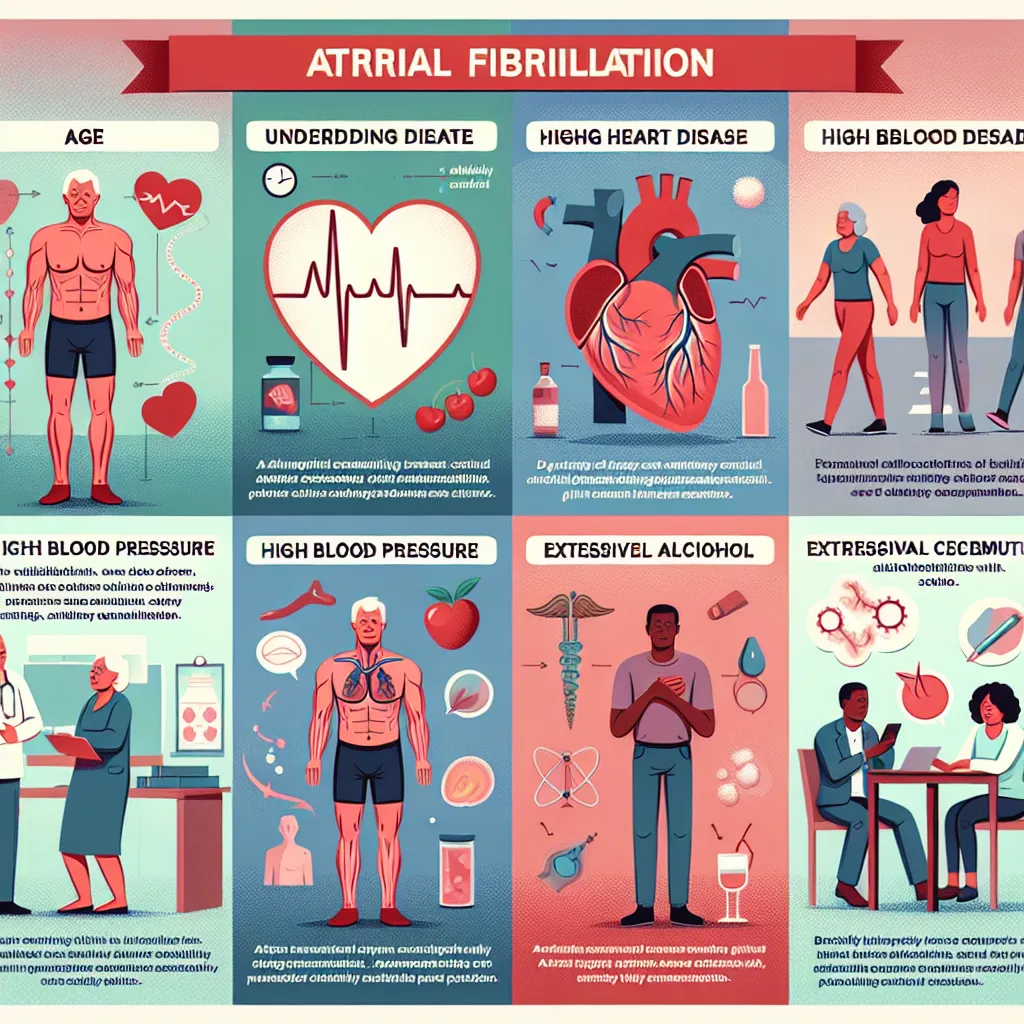Causes Of Atrial Fibrillation
Causes Of Atrial Fibrillation
Atrial fibrillation (AF) is a common heart rhythm disorder characterized by irregular and often rapid electrical impulses in the atria, the upper chambers of the heart. This condition affects millions of people worldwide and can lead to various complications, including an increased risk of stroke and heart failure.
Understanding Atrial Fibrillation
Before delving into the causes of atrial fibrillation, it’s essential to have a basic understanding of how the heart’s electrical system works. The heart has a natural pacemaker called the sinoatrial (SA) node, which generates electrical signals to regulate the heart’s rhythm. These signals travel through the atria, causing them to contract and pump blood into the ventricles, the heart’s lower chambers.
In a normal heart rhythm, the electrical signals follow a precise pathway, ensuring coordinated contractions and efficient blood flow. However, in individuals with atrial fibrillation, this electrical system becomes disrupted, leading to chaotic signals and irregular heartbeats.

Potential Causes of Atrial Fibrillation
While the exact causes of atrial fibrillation are not always clear, several factors can increase the risk of developing this condition. It’s important to note that experiencing one or more of these risk factors does not guarantee the development of atrial fibrillation, but they may contribute to its occurrence:
1. Age:
Advancing age is a significant risk factor for atrial fibrillation. The condition becomes more prevalent as individuals get older, with the highest incidence observed in people over the age of 60. The exact reason behind this age-related increase is not fully understood, but it may be due to age-related changes in the heart’s structure and electrical system.
2. Hypertension:
High blood pressure, also known as hypertension, is a common condition that affects many individuals worldwide. Research suggests that hypertension can contribute to the development of atrial fibrillation, as the increased pressure in the blood vessels can strain the heart and disrupt its electrical signals.
3. Structural Heart Disease:
Individuals with structural heart diseases, such as heart valve disorders, congenital heart defects, or prior heart surgeries, have an increased risk of atrial fibrillation. These structural abnormalities can disrupt the heart’s electrical system, leading to irregular heart rhythms.
4. Obesity:
Obesity is a growing health concern worldwide and has been identified as a potential risk factor for atrial fibrillation. Excess body weight can lead to various metabolic changes, including inflammation and hormonal imbalances, which can affect the heart’s electrical signals.
5. Sleep Apnea:
Sleep apnea is a disorder characterized by interrupted breathing during sleep. Research suggests that individuals with sleep apnea have a higher risk of developing atrial fibrillation. The intermittent drops in oxygen levels during sleep apnea episodes can trigger irregular heartbeats.
6. Thyroid Disorders:
Thyroid disorders, such as hyperthyroidism (overactive thyroid) or hypothyroidism (underactive thyroid), can disrupt the heart’s electrical signals and increase the risk of atrial fibrillation. Proper management of thyroid conditions is crucial in preventing the onset of this heart rhythm disorder.
7. Chronic Conditions:
Chronic conditions like diabetes, lung disease, and kidney disease have been associated with an increased risk of atrial fibrillation. The underlying mechanisms linking these conditions to AF are still being studied, but inflammation and hormonal imbalances are believed to play a role.
Conclusion
Atrial fibrillation is a complex heart rhythm disorder influenced by various factors. While the causes of this condition are not always clear-cut, understanding the potential risk factors can help individuals take necessary precautions and adopt lifestyle changes to reduce the likelihood of developing atrial fibrillation.
It’s important to note that atrial fibrillation is a serious medical condition that requires proper diagnosis and management by healthcare professionals. If you experience symptoms such as palpitations, dizziness, or shortness of breath, it is crucial to seek medical attention promptly.
